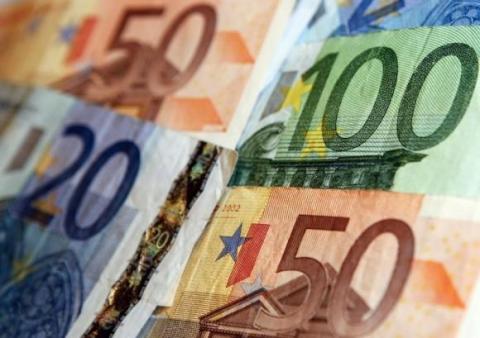Euro staggers in wobbly start for 2015, ECB and Greece in focus

By Ian Chua and Shinichi Saoshiro
The euro wallowed near a nine-year trough early on Tuesday, keeping up a wobbly start to 2015 as the prospect of more policy easing from the European Central Bank grew ever stronger.
The common currency last traded at $1.1948 after dipping into the $1.1860 area on Monday, reaching depths not seen since early 2006. The selloff extended the currency's eye-watering 12-percent slide in 2014, its worst performance in nine years.
Adding pressure on the ECB to do more, German inflation slowed to its lowest in over five years in December. The data came just days after ECB President Mario Draghi said the risks were growing that inflation would stay too low for too long.
Constant chatter of a Greek exit from the euro zone further sapped confidence in the currency.
"I believe EURUSD will continue to fall this month as the market moves to near 100 percent certainty of ECB QE on January 22,» analysts at CitiFX wrote in a note to clients, attributing those comments to the bank's head New York spot trader.
These factors, combined with persistent weakness in oil prices, spooked investors on Monday, sending Wall Street to its biggest one-day fall in about three months.
In the currency market, the flight to safety drove investors into the arms of the yen. As a result, the dollar dipped to as low as 119.155 yen from Monday's high of 120.68, moving further away from a seven-year peak of 121.86 set last month.
A sharp fall in U.S. Treasury yields also undermined the dollar versus the yen, with 10-year yields diving 14 basis points in just two sessions.
"The dollar/yen surge late last month that ignored some weak U.S. data was overdone, it was led by sentiment and not based on solid factors....
- Log in to post comments
